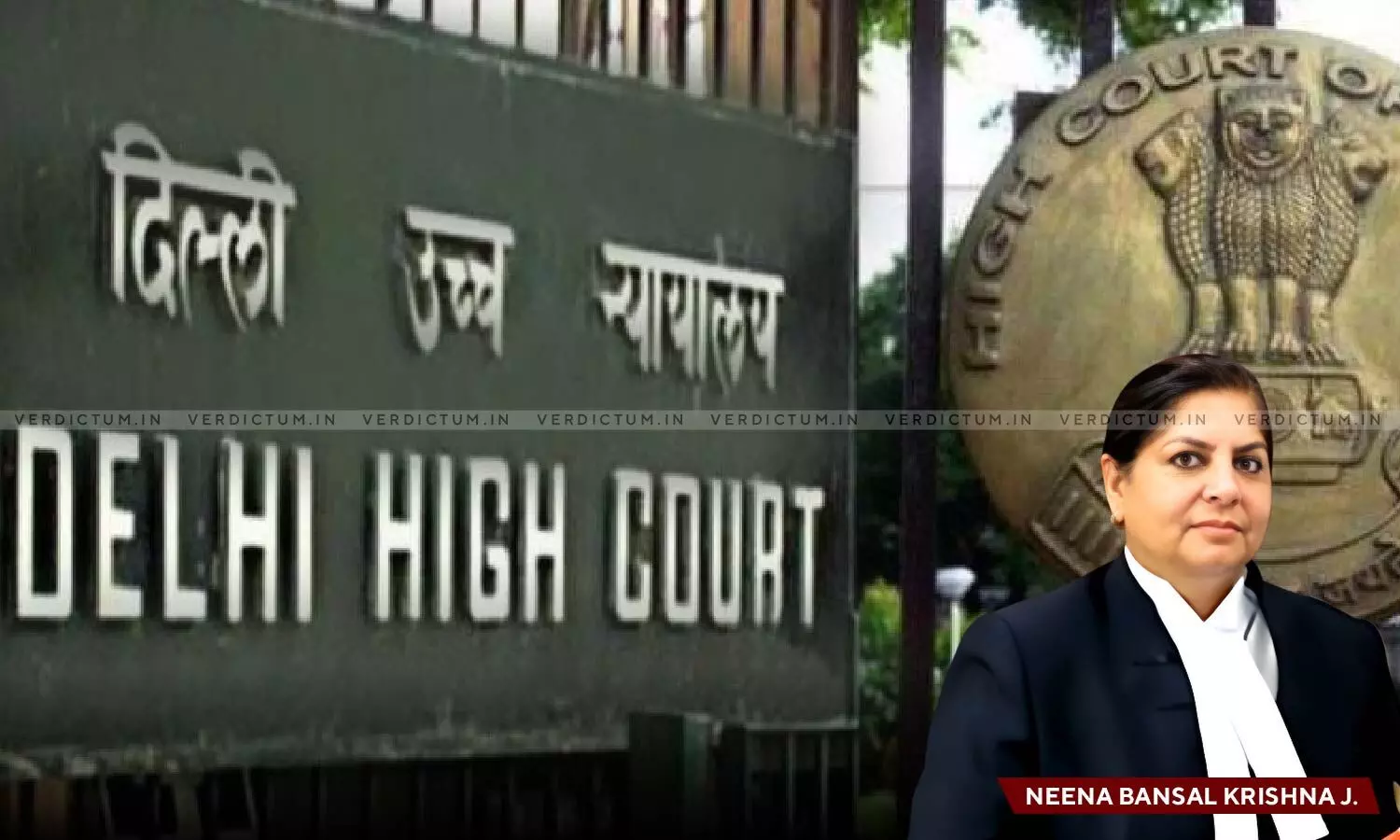
Section 34 A&C Act: Court Evaluating Arbitral Award Under Public Policy Is Not Court Of Appeal, Cannot Address Factual Errors: Delhi HC
 |
|The Delhi High in its recent judgment rejected to interfere with an Arbitral Award while stating that once a plausible reasoning has been given by the Arbitrator, the Court cannot interfere with its decision.
“Once a plausible reasoning has been given by the ld. Arbitrator, this Court cannot re-appreciate the merits in exercise of its jurisdiction under S.34 of A&C Act. When a court evaluates an Arbitral Award under the "Public Policy" standard, it is not functioning as a court of appeal and consequently, factual errors cannot be addressed. A conceivable interpretation of the facts by the arbitrator must inevitably pass muster because the arbitrator is the ultimate arbiter of the quantity and quality of evidence to be considered when issuing his arbitral ruling. When it is determined that the Arbitrator's method is neither arbitrary nor capricious, he has the final say on the matter”, added the Court.
While rejecting the contention of the Petitioner to set aside Arbitral Award as being violative of the Indian Contract Act, Indian Partnership Act and it suffers from patent illegality as award of damages in favour of the Respondent are based on no evidence, a Single Judge Bench of Justice Neena Bansal Krishna reiterated that “a mere difference of opinion in interpreting the contract or the applicable law, could not be classified as patent illegality. Furthermore, the term "patent illegality" does not apply to legal violations that are unrelated to matters of public policy or interest”.
Advocate Saurav Agarwal appeared for the Petitioner, whereas Advocate S. Ravi Shankar appeared for the Respondents.
In a brief background, the Petitioner (IRCTC) had given tender to the Respondent to operate Food Plazas at stations in Mumbai. Later, through permission granted by the Petitioner, Respondent sub-licenced 75% of designated premises to someone else. However, over the remaining 25%, an unauthorized ‘third party’, forcibly took possession. Resultantly, a suit was filed before the Small Causes Court contending that the possession was taken via forged document. The Petitioner later, terminated the licence of Respondent, who then invoked arbitration. After exhaustive evaluation of facts, the Arbitral Award was granted in favour of the Respondent. Hence, present petition.
After considering the submission, the High Court stated that onus of proof of proving that there was a valid agreement between third party and the Respondent was on the Petitioner, whereas the Respondent denied having an agreement all together.
With respect to assertion of the Petitioner that damages have been awarded without adducing to any evidence, the Bench observed that, “both the parties had opted not to lead any evidence and that their claims be decided on the basis of the documents on record. At this stage, they now cannot make any grievance of no formal evidence having been led by both the parties, when they themselves had agreed to this procedure. Moreover, the Arbitrator has given cogent reasons for granting the damages and no perversity in the calculations of the damages has been highlighted”.
The High Court also observed that the Arbitrator has given full justification for arriving at the damages and for determination of all the claims, and his findings are duly supported with reasons and documents.
Accordingly, the High Court denied interfering with the reasoned order given by the Arbitral Tribunal.
Cause Title: Indian Railway Catering & Tourism Corp. Ltd. v. M/S Goel & Goel [Neutral Citation No.: 2023: DHC: 3959]
Click here to read / download Judgment